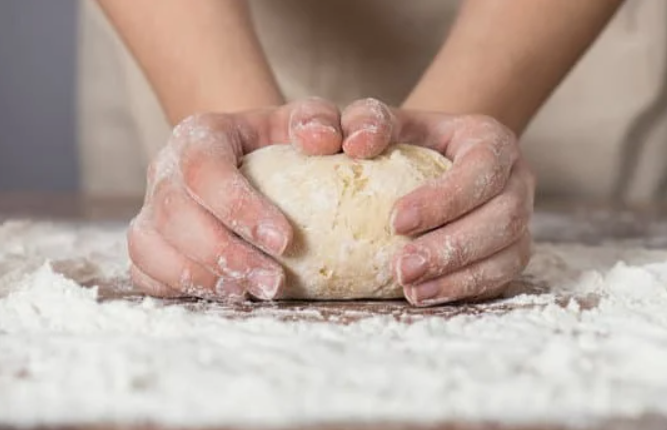Brioche Dough: How Long Does it Last?

What To Know
- It is important to be aware of the signs of spoilage in brioche dough to avoid consuming compromised products.
- Bake brioche dough at a high temperature (375-400°F) for a short period to achieve a golden-brown crust and fluffy interior.
- Brioche dough can be stored at room temperature for a few hours if it is tightly covered to prevent moisture loss.
Brioche dough, with its signature golden-brown crust and fluffy, buttery interior, is a culinary delight that has captivated bakers and pastry enthusiasts alike. However, as with any perishable ingredient, the question of how long brioche dough will last is crucial for ensuring optimal results and minimizing waste. In this comprehensive guide, we will delve into the factors that influence the shelf life of brioche dough, providing practical tips and storage techniques to maximize its longevity.
Factors Affecting Brioche Dough’s Shelf Life
Several factors play a significant role in determining how long brioche dough will remain fresh and usable:
- Temperature: Temperature is a critical factor in the preservation of brioche dough. Cold temperatures slow down microbial growth, while warm temperatures accelerate it.
- Moisture Content: High moisture content can create a favorable environment for microbial growth, shortening the dough’s shelf life.
- pH Level: The pH level of brioche dough can affect its susceptibility to spoilage. A lower pH (more acidic) environment inhibits microbial growth.
- Ingredients: The specific ingredients used in the brioche dough, such as sugar, salt, and eggs, can influence its shelf life.
Storage Techniques to Extend Shelf Life
To maximize the shelf life of brioche dough, proper storage techniques are essential:
- Refrigeration: Brioche dough can be stored in the refrigerator for 2-3 days. Wrap the dough tightly in plastic wrap or place it in an airtight container to prevent moisture loss and contamination.
- Freezing: For longer storage, brioche dough can be frozen for up to 2 months. Wrap the dough tightly in plastic wrap and then place it in a freezer-safe bag or container.
- Proofing: If you plan to use the brioche dough within a few hours, you can proof it at room temperature. Cover the dough with plastic wrap or a damp towel to prevent it from drying out.
Signs of Spoilage
It is important to be aware of the signs of spoilage in brioche dough to avoid consuming compromised products:
- Mold Growth: Visible mold growth on the dough’s surface indicates spoilage.
- Sour Smell: An unpleasant, sour smell is a sign of microbial activity.
- Discoloration: Changes in the dough’s color, such as darkening or yellowing, can indicate spoilage.
- Slimy Texture: A slimy or sticky texture is another sign of microbial growth.
Tips for Using Brioche Dough
To ensure optimal results when using brioche dough, consider the following tips:
- Thaw Properly: If frozen, thaw the brioche dough overnight in the refrigerator before using it.
- Knead Before Shaping: Knead the dough briefly before shaping to remove any air bubbles and improve its texture.
- Proofing Time: Allow the shaped dough to proof for 1-2 hours, or until it has doubled in size.
- Baking Temperature: Bake brioche dough at a high temperature (375-400°F) for a short period to achieve a golden-brown crust and fluffy interior.
Troubleshooting Common Issues
If you encounter any issues with brioche dough, here are some troubleshooting tips:
- Dough is Too Sticky: Add more flour to the dough, one tablespoon at a time, until it reaches a manageable consistency.
- Dough is Too Dry: Add a little bit of water to the dough, one tablespoon at a time, until it becomes more pliable.
- Dough is Not Rising: Ensure the yeast is fresh and active. Also, check the temperature of the proofing environment.
Answers to Your Most Common Questions
1. How long can brioche dough be stored at room temperature?
Brioche dough can be stored at room temperature for a few hours if it is tightly covered to prevent moisture loss.
2. Can I freeze brioche dough after it has risen?
Yes, you can freeze brioche dough after it has risen. However, it is recommended to punch down the dough and reshape it before freezing to prevent air pockets from forming.
3. How do I know if brioche dough is spoiled?
Signs of spoilage in brioche dough include mold growth, a sour smell, discoloration, and a slimy texture.
4. Can I use brioche dough that has been frozen?
Yes, you can use brioche dough that has been frozen. Thaw it overnight in the refrigerator before using it.
5. Why is my brioche dough not rising?
Possible reasons include inactive yeast, incorrect proofing temperature, or insufficient kneading.





